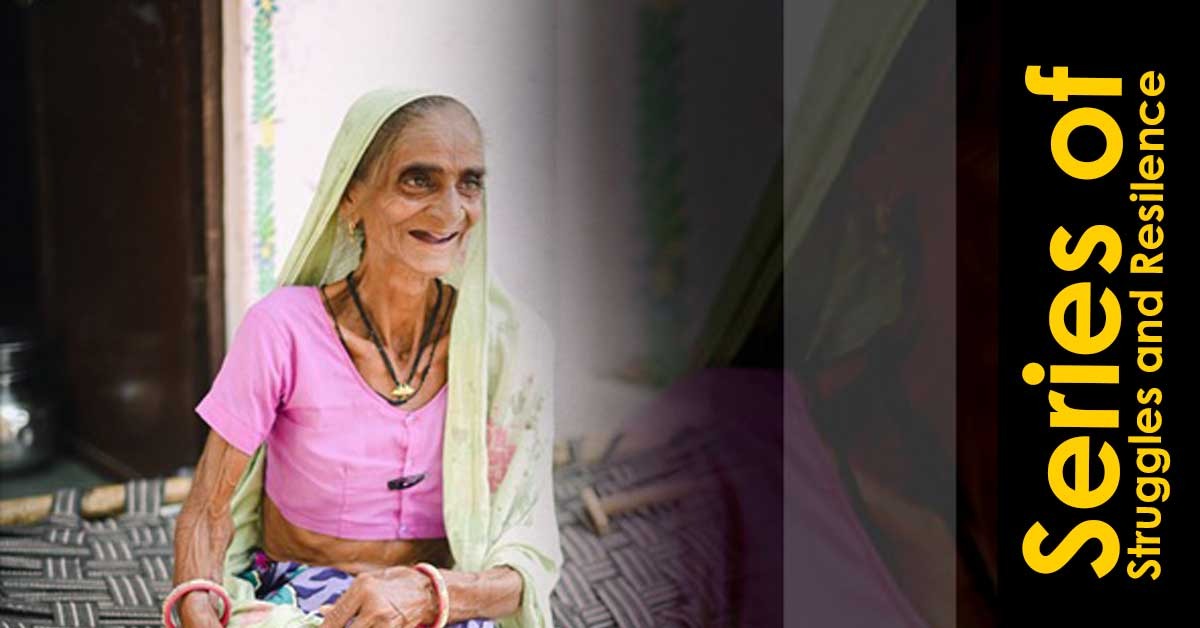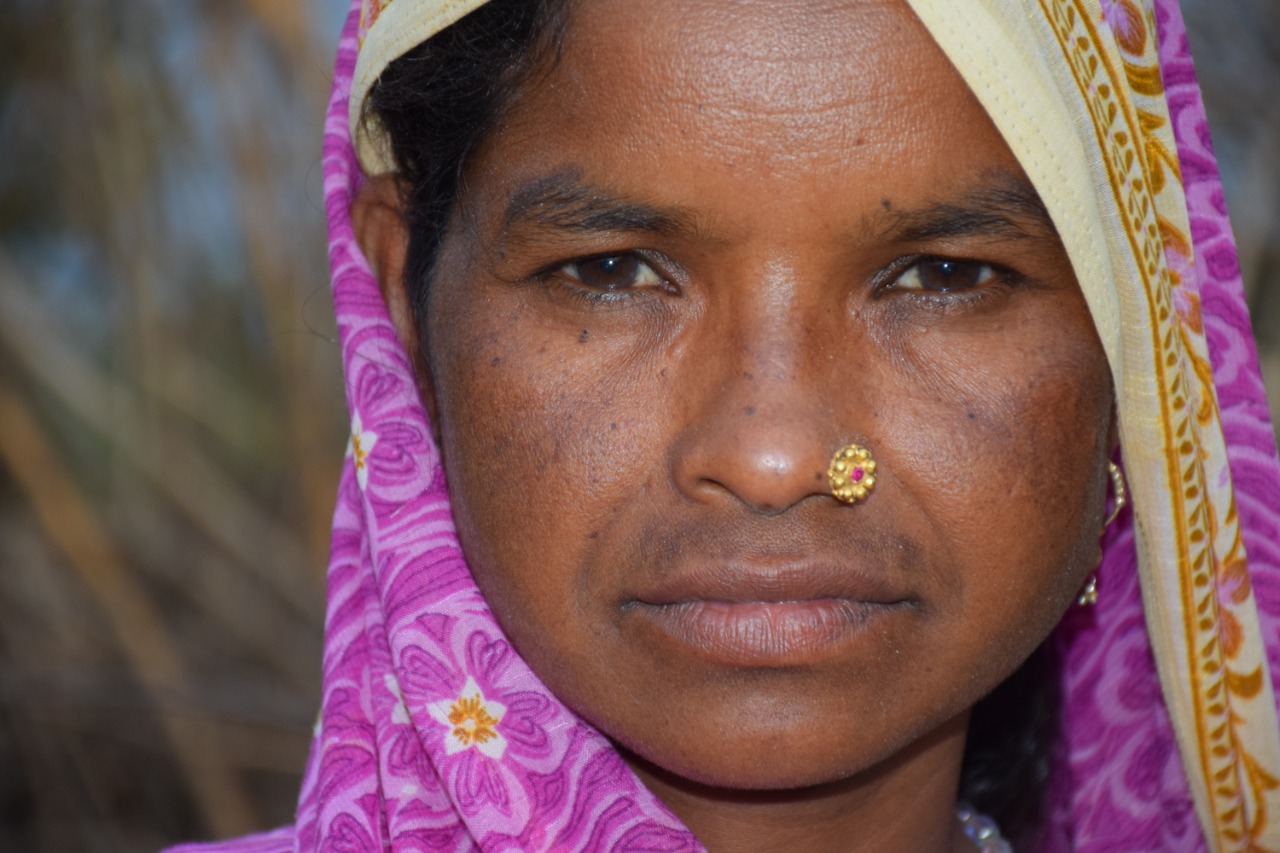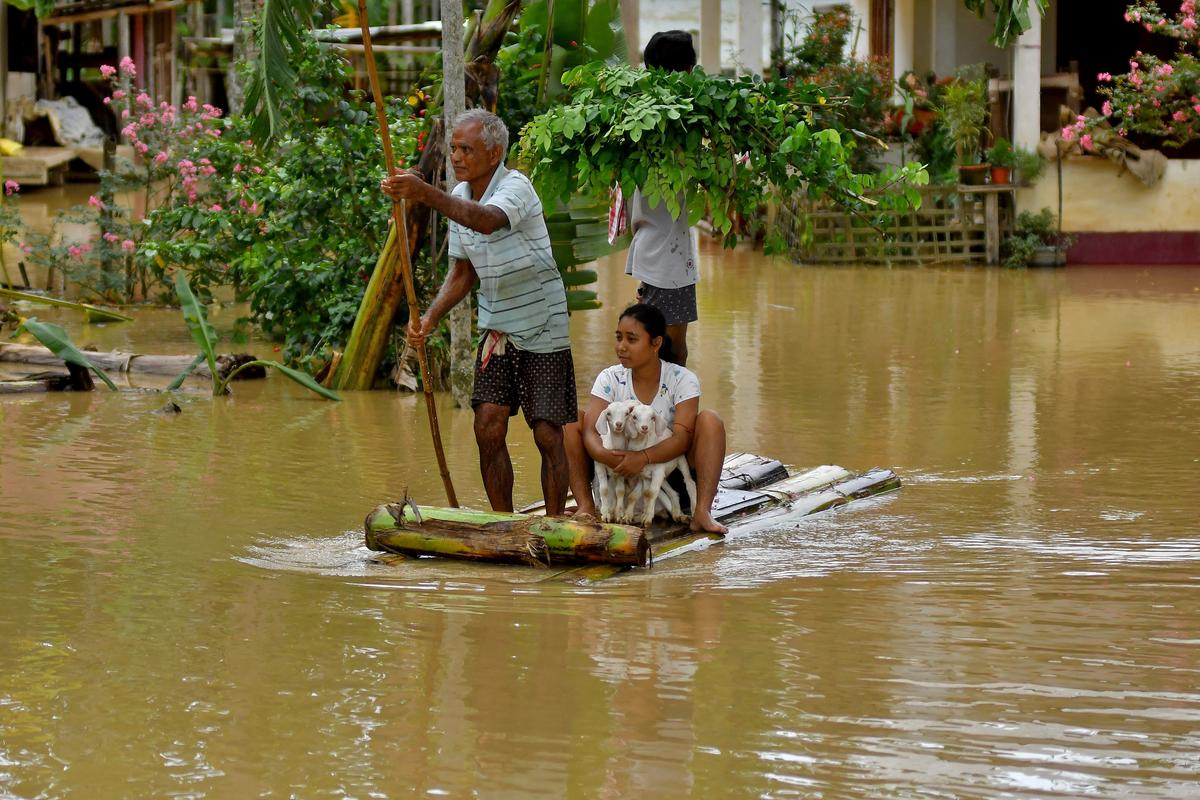CASA BLOGS

Sharing Care with the Caregivers
For the people residing in remote areas across India, access to infrastructural facilities has become a rare privilege. At times the natural barriers in the landscapes, such as a towering hill or a deep lake cut off a small premise from the rest of the village area, making it a secluded world on its own. Certain villages are even inaccessible by regular roads. Arrangements such as a single-seater rope trolley or narrow bridge that sags heavily under the weight of the traveller’s foot become the only connecting routes that allow the natives access to the world outside.
Laali, a 60-years old woman from the Nathara village of Rajasthan, has been residing in a remote segment since her childhood. The impediment to her interaction with the wide world is not the location of her home but also her differently-abled body. Since childhood, Laali has been struggling with the proportion of her skeletal development. As her age started to roll forward, Laali’s spine began hunching towards her chest. Her limbs grew distorted and disproportionately curved.
Witnessing this abnormal growth, Laali’s father Chattraji consulted the Udaipur hospital which is very far from the village. Owing to their slim financial predicament and distance from the hospital, Laali’s treatment could never continue uninterrupted. Despite the unfruitful breaks in medical care, Chattraji unconditionally provided for his daughter’s emotional and material need of support throughout her childhood.
Age started to show on Chattraji’s face. As his strongest days approached an end, driving him closer to his departure from his earthly existence, he handed over Laali’s responsibility to his elder son and daughter-in-law. Chattraji passed away leaving Laali deserted of the greatest support she had in her trying times. Her brother and sister-in-law tried to make for his absence but nothing could have compensated for the loss of such a loving father. Life has to continue in a rhythm with time, so did it. Laali remained unmarried as her health continued to depreciate and the disability hampered her capacity to even move on her own.
For some years in her youth, Laali used to briefly move from one place to another on her own by propelling the floor with hands while being seated on a small wooden board fitted with wheels. Ageing compromised her ability to move. However, her brother and sister-in-law continued to help her in using the washroom, bathing, eating, moving to far places and so on. While hardships allowed no respite to Laali or her caregivers, the unforeseen medical emergency brought by the COVID-19 pandemic worsened their lives.
Lack of access to proper medical care during the COVID-19 pandemic made Laali and her caregivers vulnerable to the infection. Her existing health condition and elderly age were the greatest risk factors for susceptibility. The blow imposed by the second wave of COVID-19 on the family’s income had already impacted their capacity to afford an everyday meal. In such a condition, meeting medical expenses and the increasing need for sanitisers and soaps kept on adding challenges every day. More than the threats of the virus, the escalating financial burden made it hard for the family to take care of Laali properly.
To ensure that Laali’s health is taken care of, it was also essential to safeguard her family. When CASA learned about Laali’s condition, the family was assisted with a hygiene kit and INR 3000 for survival-related aid during the second wave. After receiving the aid, Laali shared that the amount had been of great help as she wanted to help her sister-in-law in purchasing rations. Moreover, she required some medicines to support her health which could now be managed with the sum. The hygiene kit has also helped her and her family stay safe from COVID-19.
 Previous Blog Post Dire need of financial aid amidst the Pandemic
Previous Blog Post Dire need of financial aid amidst the Pandemic Blossoming the essence of Life in Project areas
Blossoming the essence of Life in Project areasFeatured Post

Mental Health Awareness in India: Addressing Key Challenges
8 Nov 2024
Mental health awareness is crucial in India, where millions silently struggle with mental health disorders, including depression, anxiety, and bipolar disorder. Despite growing recognition, India faces unique challenges in effectively addressing mental health issues. The stigma associated with mental illness remains a primary barrier. In Indian society, mental health issues are often misunderstood, leading to […]

Ensuring Girls’ Safety in India: A Path Toward Empowerment
20 Aug 2024
Girls’ safety in India remains a critical issue that has garnered increasing attention over the years. Despite various reforms and efforts from both government and civil society, challenges persist. From street harassment to domestic violence, gender-based discrimination continues to limit the freedom and safety of girls. While significant progress has been made in addressing these […]

The Connection Between Monsoons and Floods in India: An In-Depth Analysis
9 Jul 2024
India, a land of diverse climates and geographical features, relies heavily on the monsoon season for its agricultural and water resources. However, with the benefits of the monsoon rains come significant challenges, particularly in the form of floods. This blog explores the intricate relationship between the monsoon season and flooding in India, providing detailed insights […]


